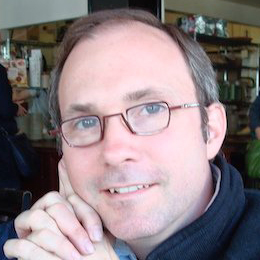There was an eerie synchronicity about Richard Florida’s entry on the Toronto scene just as Jane Jacobs exited it for the last time. Jacobs had left her beloved New York for Toronto in the 1960s and Florida gave up an endowed chair at George Mason University in Washington D.C. to run the new $120-million Martin Prosperity Institute at the Rotman School. Both emigrations generated much comment. And there are intellectual ties between the two urban theorists: Jacobs is one of Florida’s idols, and his work aims to plow the fields cleared by her seminal 1961 tract, The Death and Life of Great American Cities.
Florida’s recent best-selling books, The Rise of the Creative Class (2002) and The Flight of the Creative Class (2005), argue that cities live and die based on their ability to attract and retain creative types. The two volumes have become gospel for progressive city planners. “It’s not just about building high-tech office corridors,” he says. “It’s about creating the sort of cities that creative people want to live in.” So pervasive are his ideas that comedian Stephen Colbert did a segment on Florida’s use of a gay index, to estimate how attractive a city is to the group he calls the creative class. “I used this rough measurement of the concentration of lesbians and gays in a region to measure how comfortable a city could make a diverse set of people, creative people, and that drew a lot of comment and controversy,” says Florida.
The trained economist’s interest in what makes cities thrive or wither has roots in his own life. The son of an Italian-American factory worker watched disenfranchised (mainly black) rioters run amok in his hometown of Newark, New Jersey, in the 1960s, precipitating the flight of its (mainly white) middle class to the suburbs. “The key work that this institute will have to do, and the reason we’ve called it the Prosperity Institute, is to marry a discussion of growth and competitiveness with a discussion of social inclusion. The question is, ‘Can you have growth that is not so divisive?’”
Florida, 50, is among the many commentators to see two nations emerging in his native America. With a typically speedy burst of words, he paints the split in the States in more than red and blue: “The people voting George Bush into office, the people Karl Rove is targeting, are the people on the wrong side of the class divide. They’re scared, anxious that they’re being left out. They don’t see many options for their kids; they’re not technologists; they’re not artists. They live in more rural areas, and what they’re hearing is, ‘gay folks are the cause of your problems, immigrants are taking your jobs.’”
Which brings him to another aim for the fledgling institute (named after Dean Roger Martin): to focus on how smaller centres can remain competitive in a swiftly urbanizing world. “This is not just about Toronto. We want to have day sessions where people from across the province can come and get a tool kit and go back to their towns and try out some of these ideas.”
This ebullient man, an avid bicyclist and committed social activist, doesn’t think universities should be ivory towers, places for pristine thoughts or retreats from the too, too frantic world. He enjoys articulating theories, but, like Jacobs, likes to watch them in action. “I love that we’re in the MaRS building, under the cupola, that we’re part of the downtown, not on a separate campus. We want to make it a place where not only scholars feel comfortable, but where policy-makers, creative folk also feel at home, where you could see both a Leslie Feist and a Dalton McGuinty.”
Recent Posts
U of T’s 197th Birthday Quiz
Test your knowledge of all things U of T in honour of the university’s 197th anniversary on March 15!
Are Cold Plunges Good for You?
Research suggests they are, in three ways
Work Has Changed. So Have the Qualities of Good Leadership
Rapid shifts in everything from technology to employee expectations are pressuring leaders to constantly adapt





